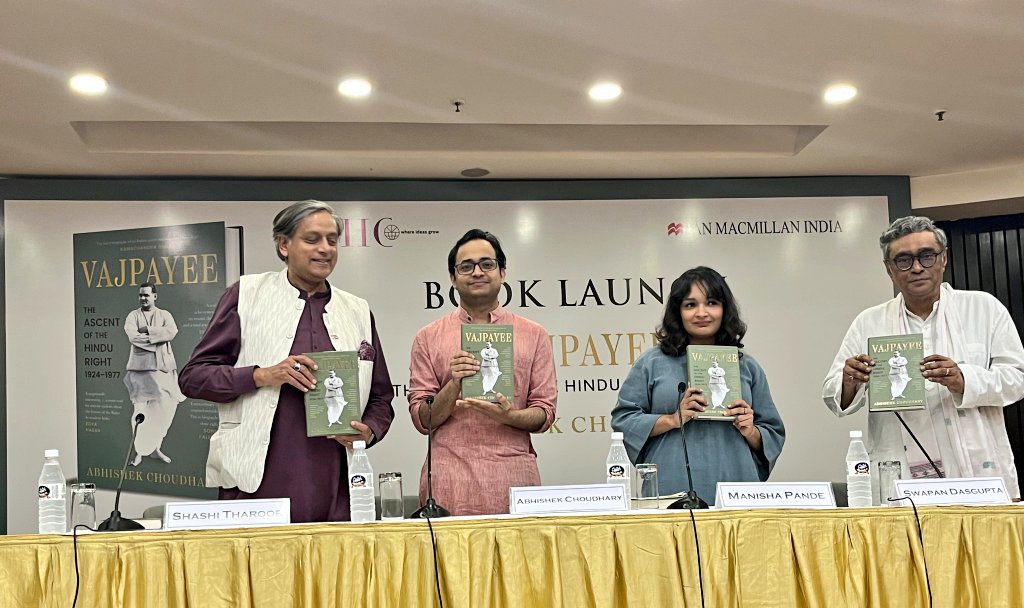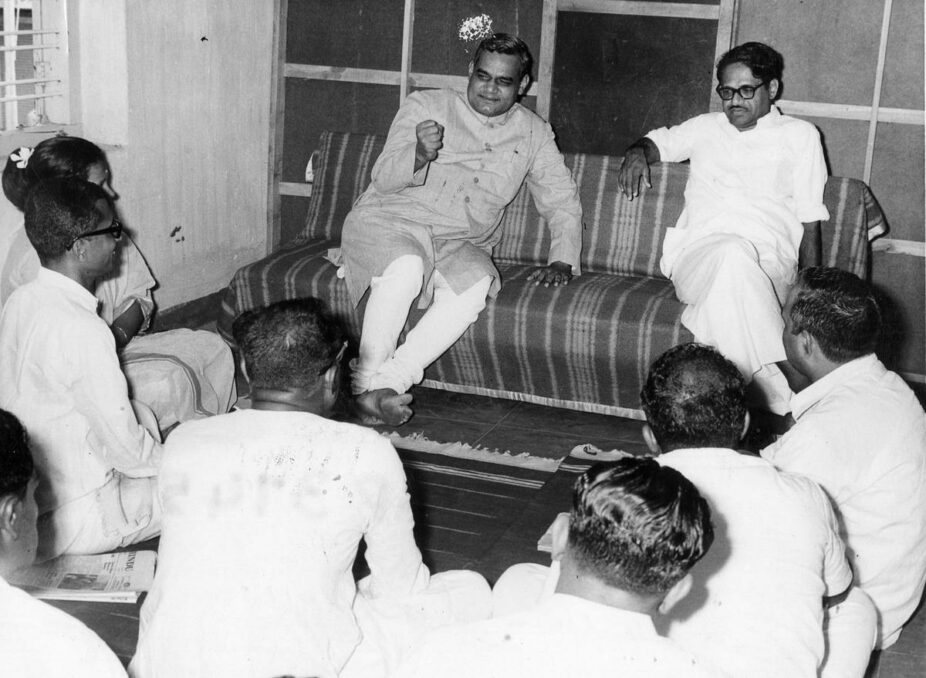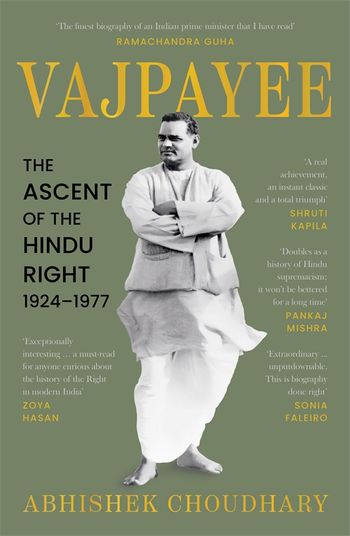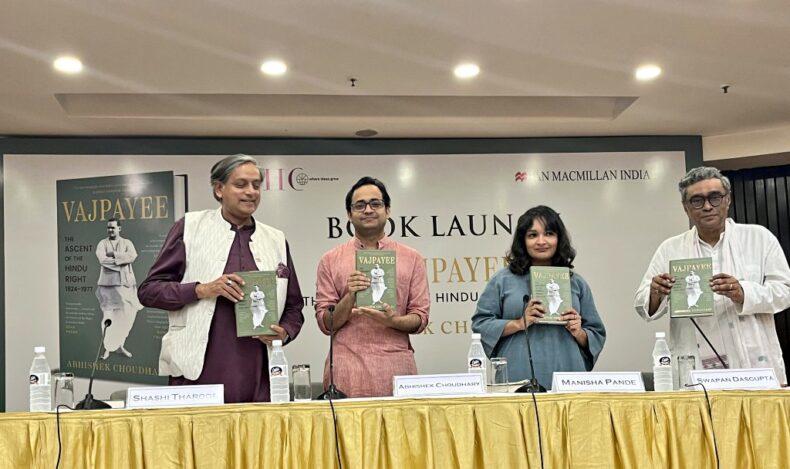Abhishek Chaudhary’s biography challenges the popular image of Atal Bihari Vajpayee and his political journey, sparking debates and redefining perceptions.
In a jam-packed event held at the prestigious India International Center in New Delhi, the highly anticipated book “Vajpayee: The Ascent of the Hindu Right 1924–1977” by Abhishek Chaudhary was launched yesterday. The book, which delves into the early years of former Prime Minister Atal Bihari Vajpayee, has been making waves for its revelations that challenge prevailing perceptions of the beloved leader.

The book launch event drew a diverse audience, including scholars, authors, journalists, activists, retired civil servants, and commentators, many of whom were eager to gain a deeper understanding of Vajpayee’s political journey. The panel discussion featured prominent figures from different political spectrums, including Congress leader and renowned author Shashi Tharoor, Bharatiya Janata Party (BJP) leader Swapan Dasgupta, and journalist Manisha Pande.
Chaudhary’s book offers a rare glimpse into Vajpayee’s formative years and presents a contrasting image of the late Prime Minister. According to the author, Vajpayee’s early political ideology was rooted in strident Hindutva beliefs, and he perceived Muslims as inherently disloyal to India, a perspective that starkly contrasts with the moderate and avuncular image he holds today.

Chaudhary’s meticulous research and primary sources have allowed him to peel back the layers and shed new light on one of the most enigmatic politicians of the Bharatiya Janata Party (BJP). Chaudhary’s biography sheds light on Vajpayee’s early writings, which reveal a sense of Hindu victimhood and distrust towards Muslims, elements not typically associated with his public image. Notably, the book highlights a poem written by Vajpayee that borrows from a revisionist Arya Samaj version of history, portraying his intense rage and victimhood.
The launch event witnessed contrasting views from the panelists. Shashi Tharoor expressed that Vajpayee’s popularity among the liberal community is primarily due to his stark contrast with the current Prime Minister, Narendra Modi. On the other hand, Swapan Dasgupta, who referred to Vajpayee as his “boyhood hero,” acknowledged the frustration some within the BJP felt regarding Vajpayee’s softer image. Dasgupta welcomed Chaudhary’s book, stating, “I recognize more of Atal Bihari Vajpayee in this book.”

While the book covers Vajpayee’s political journey until 1977, Chaudhary announced that a second volume would be released next year, delving into crucial events such as the Janata Party government, the 1984 electoral defeat, the Ayodhya controversy, and the formation of governments until Vajpayee’s stroke in 2007.
“Vajpayee: The Ascent of the Hindu Right 1924–1977” challenges existing perceptions of Atal Bihari Vajpayee and provides valuable insights into the rise of Hindu majoritarian politics in post-independence India. As the country grapples with questions about its current political landscape, this book offers a critical exploration of the path that led to the present moment.
Abhishek Chaudhary’s meticulous research and deep dive into Vajpayee’s early life have sparked debates, shattered myths, and provided a more complex understanding of the former Prime Minister’s character. The book promises to be a significant contribution to the understanding of Indian politics, ultimately answering the question, “How did we get here?”













